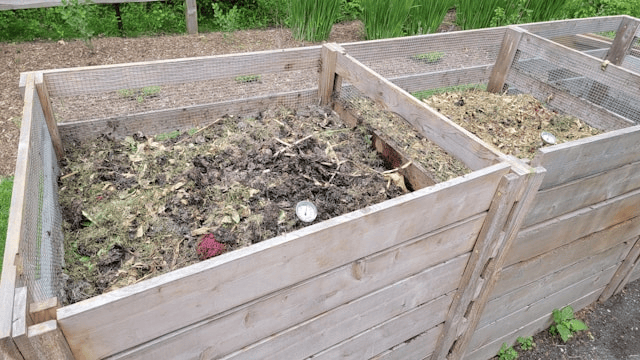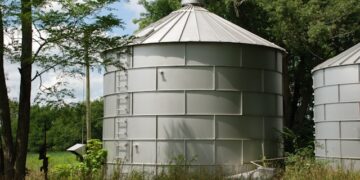Summer is a season of growth, sunshine, and vibrant gardens and it’s also the perfect time to start composting. Whether you’re growing tomatoes on a balcony or managing a full backyard garden, composting is one of the most effective ways to reduce waste, nourish your soil, and build a healthier garden ecosystem.
But composting in the summer comes with its own unique set of challenges. Higher temperatures can accelerate decomposition, but they can also lead to strong odors, unwanted pests, and piles that dry out or overheat. If you’re a beginner, don’t worry these summer composting tips for new gardeners will help you get started the right way and keep your compost pile thriving through the hottest months.
Why Summer Composting Is Unique
If you’re new to composting, you might not realize how much the seasons affect your compost pile. Summer is an especially dynamic time for composting. The increased heat can speed up the decomposition process, which is great for turning your organic scraps into usable compost faster. However, warm weather also means more moisture loss, more smells, and more pests if your compost pile isn’t properly managed.
Understanding the differences between summer and year-round composting is essential for beginner composters. With the right approach, you can turn the season’s challenges into advantages and maintain a healthy, efficient compost pile all summer long.
Top Summer Composting Tips for New Gardeners
Ready to dive in? Here are the most important summer composting tips to keep your pile balanced, odor-free, and full of life.
1. Keep It Moist but Not Soaked
In hot weather, your compost can dry out quickly. Moisture is essential for microbial activity, which drives decomposition. Check your compost pile regularly especially after hot, dry days. If it feels dry and crumbly, give it a light watering with a hose or watering can. Your pile should feel like a wrung-out sponge: damp but not dripping wet.
If you live in a particularly dry climate, consider using a tarp or compost bin with a lid to help retain moisture.
2. Turn the Pile Frequently
Summer heat can cause parts of your compost pile to become too hot or compacted, which slows down the decomposition process. Aerating your compost by turning it every few days helps distribute heat evenly and allows oxygen to reach the microbes doing the work.
Turning the pile more often in summer also helps reduce smells and discourages pests.
3. Balance Your Greens and Browns
One of the most important composting for beginners tips is to maintain a healthy balance between “greens” (nitrogen-rich materials like food scraps and grass clippings) and “browns” (carbon-rich materials like dry leaves, straw, and shredded paper). In summer, it’s easy to overload on greens, especially if you’re harvesting a lot from your garden.
Too many greens can cause your compost to become wet and smelly. Aim for about 2 to 3 parts browns for every 1 part green to keep your compost well-balanced and aerobic.
4. Chop and Shred Materials
In warm weather, compost breaks down faster especially if the materials are small. Cutting up vegetable scraps, tearing newspaper, and shredding garden clippings will help everything decompose more efficiently.
This tip is especially useful in summer when high temperatures can cause piles to get hot quickly. Smaller materials allow heat and oxygen to move more freely through the pile.
5. Use a Lid or Compost Cover
To maintain control over moisture and temperature, consider using a lid, tarp, or enclosed compost bin. This helps protect your compost pile from the intense sun and sudden summer downpours, both of which can disrupt the composting process.
A lid also helps prevent pests from accessing your pile especially important during summer when animals and insects are more active.
6. Watch for Overheating
While a warm compost pile is a good sign, excessive heat (above 150°F or 65°C) can kill off beneficial microbes and reduce the overall quality of your compost. If your pile feels too hot to the touch or gives off a strong ammonia-like odor, it’s likely overheating.
To cool it down, turn the pile more often and add more browns to balance out the nitrogen-rich materials.
7. Avoid Attracting Pests
Summer composting can be a magnet for flies, raccoons, and other critters if you’re not careful. To keep your compost pile pest-free:
-
Avoid composting meat, dairy, and oily food scraps
-
Bury kitchen scraps deep within the pile
-
Use a sealed bin or compost tumbler if pests are a known issue in your area
What to Compost in Summer
Knowing what to compost in summer helps keep your pile healthy and effective. Great options include:
-
Fresh grass clippings (in moderation)
-
Vegetable and fruit peels
-
Garden trimmings
-
Coffee grounds and filters
-
Crushed eggshells
-
Dry leaves or straw
-
Cardboard and newspaper (shredded)
Be cautious about adding too much citrus, onion, or garlic, as they can slow decomposition and deter worms.
Avoid adding diseased plants or any materials treated with chemical pesticides or herbicides, as these can harm your garden when you apply finished compost.
Signs Your Summer Compost Is Thriving
So, how can you tell if your compost pile is doing well? Look for these signs:
-
A mild, earthy smell (not sour or rotten)
-
Warmth in the center of the pile
-
Visible breakdown of materials over time
-
Presence of worms, beetles, or other helpful decomposers
If your compost smells bad, seems overly wet, or is swarming with fruit flies, it’s time to adjust your balance of greens and browns, or turn the pile more often.
Conclusion
Composting in the summer is a rewarding practice that transforms your garden and reduces your household waste. While the heat and sun can present a few extra challenges, these summer composting tips for new gardeners will help you create a pile that’s productive, sustainable, and easy to manage.









